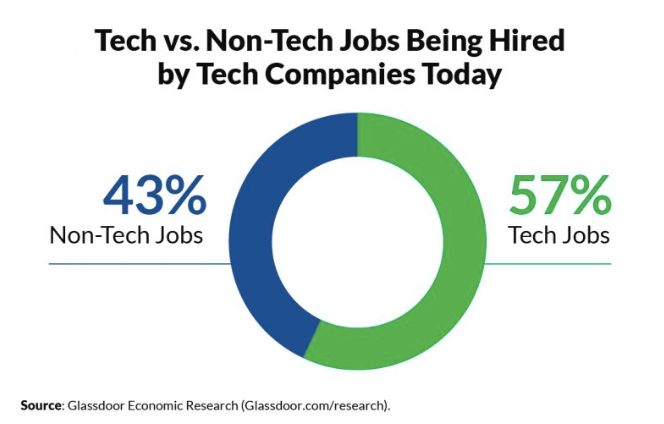This post will(or at least tries to) answer to the question from the title in context of starting career in IT.
To start with, let's discuss some common misconceptions:
- You need to have an inborn talent to become IT specialist - IT jobs are nothing but regular jobs as jobs in Medicine, Sport or Law. And like doctors, sportsmen or lawyer you need to be engaged to what you do in order to become a qualified specialist.
- You need to have full technical knowledge to work in IT - image of geek programmers is left at 60s. Now, IT is more than just development software. You may be an accountant, HR manger, recruiter, project manager, QA, consultant, and still work in IT. For this positions you do not need to fully understand college course of mathematics. Taking into consideration recent trends, even for engineers soft skills and adaptability may be more preferable than specific technical skills.
How to start? There plenty of resources on the web that teach specific skillsets required for specific job positions while some of them may offer certification after completion. I do not recommend you to completely focus on certificates. However, they may give you certain advantage compared to other candidates. My favorite resource is YouTube. But, if you are completely beginner I suggest you to start with some resources that offer more structured and ordered content as Udemy or Coursera.
Where to get first job? Join to specialized channels/groups in social networks, start using LinkedIn. Analyze the requirements for common vacancies. Apply to internships. Attend technical interviews even if you are sure that you have no enough qualification(within a reasonable).
When? If you are high school/college/university student then this question should not be tough for you. I meet lots of people who want to switch into IT field. Hesitation, and doubts are common for such case. However, I also know plenty of people who already did it. They might be at their 30s or even 40s. Commonly, age is not a superior factor by which candidates are considered. You only need engagement in what you do and some patience to achieve what you want.


Comments
Post a Comment